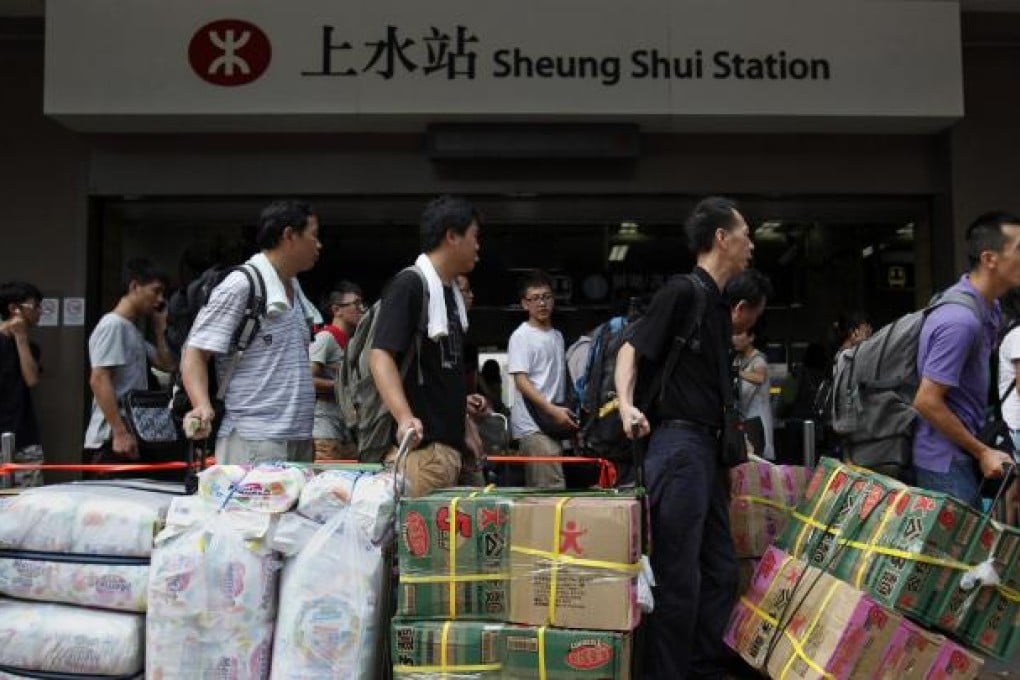Hong Kong government cracks down on cross-border parallel traders
Those who break HK immigration laws risk losing their entry permits, enforcement will be stepped up and Beijing is asked to take action

Parallel traders from the mainland risk having their entry permits cancelled if they breach Hong Kong's laws, Chief Secretary Carrie Lam Cheng Yuet-ngor said yesterday.

Earlier in the day, Chief Executive Leung Chun-ying said he would seek help from Beijing to clamp down on the parallel traders, who have been the subject of protests in North District.
While buying goods in Hong Kong for sale across the border is not illegal in the city, the traders are breaching immigration laws by working in Hong Kong.
"For those mainland parallel traders who are successfully prosecuted by the [Immigration] Department, we will request our mainland immigration counterparts to have their permits to Hong Kong cancelled," Lam said.
Police would also step up enforcement against traders who obstruct streets, cause a nuisance or threaten public safety. They would also help the MTR Corporation implement its rules, including limits on the size of baggage carried by passengers, she said. The Sheung Shui MTR station, used by parallel traders to transport their wares, has been at the centre of the protests.